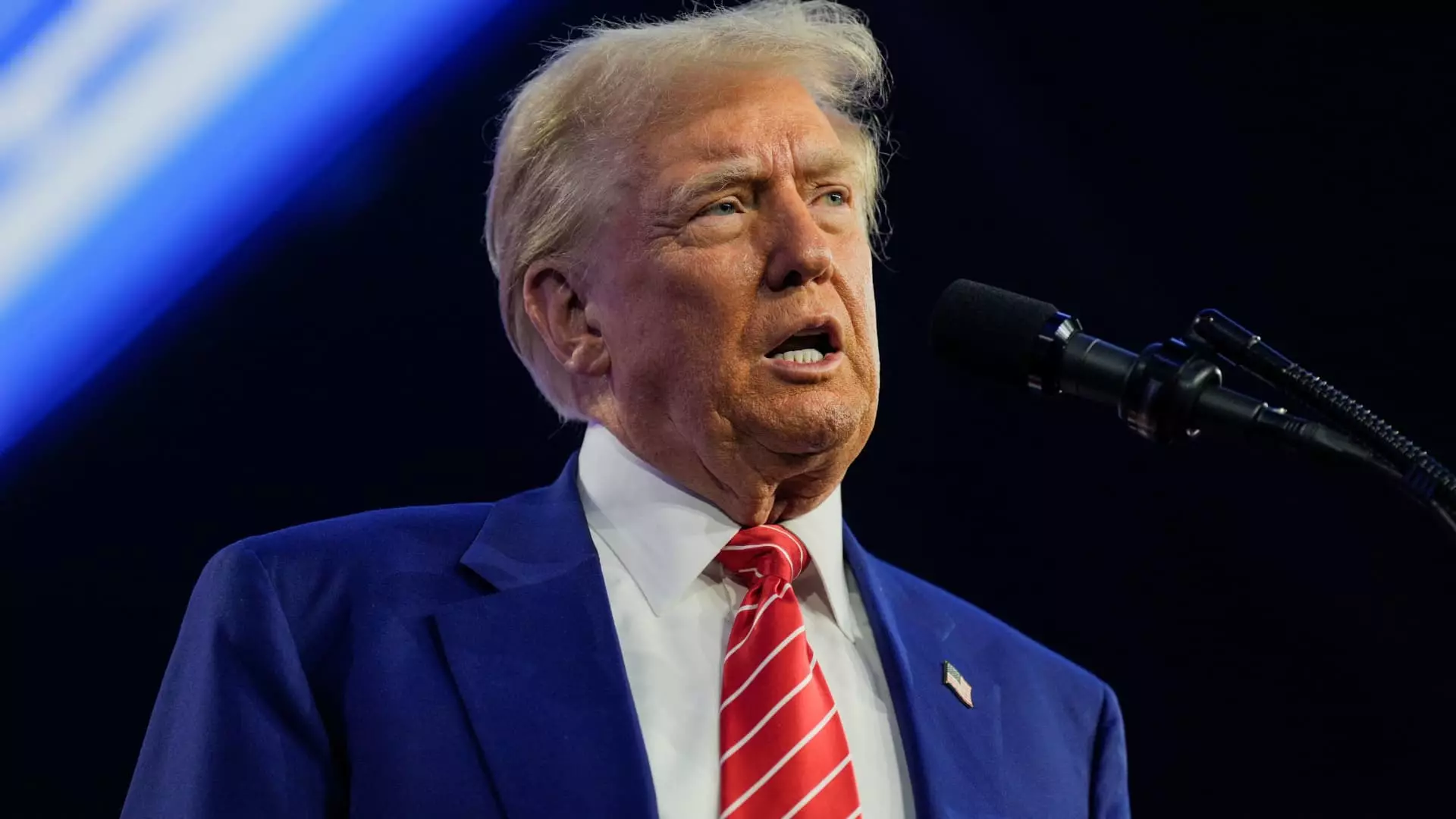TikTok, the immensely popular social media platform owned by Chinese company ByteDance, finds itself at the center of a contentious legal battle in the United States. With mounting concerns over national security and data privacy, the platform faces a looming ban unless its ownership changes. Recently, President-elect Donald Trump took an unexpected step by urging the Supreme Court to intervene in this complex situation, calling for a pause in the implementation of a law directed at banning TikTok.
The tension surrounding TikTok is rooted in bipartisan fears regarding foreign influence and data security. The Protecting Americans from Foreign Adversary Controlled Applications Act, signed into law by President Joe Biden in April, aims to mitigate these concerns by mandating ByteDance to sell TikTok to an American firm or face a ban by January 19, 2025. This law underscores a growing apprehension among U.S. lawmakers that the Chinese government could potentially gain access to American users’ data or manipulate content disseminated through the platform.
In a notable turn of events, as Trump preps for his presidential term, he is advocating for a reconsideration of this law through the Supreme Court. His legal representative, D. John Sauer, has emphasized that Trump does not wish to take an explicit position on the merits of the ban or the protection of national security. Instead, he seems to be positioning himself as a potential negotiator who could facilitate a resolution that balances both the concerns of national security and the viability of TikTok as a platform.
Trump’s approach highlights a multifaceted strategy as he aims to navigate the political landscape surrounding this issue. His historical opposition to TikTok, particularly during his previous presidential campaign when he attempted to impose a ban, contrasts sharply with his newfound willingness to negotiate. By suggesting that he holds the mandate and expertise necessary to strike a deal, Trump presents himself as a figure capable of changing the discourse around the platform.
Interestingly, Trump’s recent meeting with TikTok’s CEO, Shou Zi Chew, indicates a shift in his perception of the app. His previous hardline stance appears to have softened, as he refers to having a “warm spot” for TikTok. This change invites speculation about whether his administration would prioritize economic interests and user engagement over national security concerns, thus complicating the broader implications of his stance.
As the Supreme Court prepares to hear arguments on January 10, the legal implications of this case extend far beyond TikTok. The Justice Department’s advocacy for the law rooted in national security concerns presents an argument against TikTok that aligns with the sentiment in Congress. It points to the legitimacy of fears that the Chinese government could potentially exploit its relationship with ByteDance to access sensitive information about American users.
Conversely, TikTok’s defense hinges on First Amendment rights, asserting that a ban would infringe upon the freedom of speech for its users. This clash between national security and constitutional freedoms raises critical questions about the extent to which the government can intervene in private enterprise under the guise of protecting its citizens.
With the deadline for compliance looming, the resolution of this case may set a precedent for how the U.S. handles international technology firms in the future. The Supreme Court must grapple not only with the legality of enforcing such bans but also the broader cultural implications for millions of TikTok users who regard the platform as a vital means of expression and entertainment.
The TikTok saga illustrates the intricacies of balancing national security with individual rights in an increasingly digital world. As Trump navigates this crisis, the resulting legal decision will likely echo across various sectors, impacting not only users of TikTok but also how the U.S. engages with foreign companies in the digital age. The outcome could redefine the landscape of social media regulation, international relations, and digital freedoms for years to come.

Leave a Reply